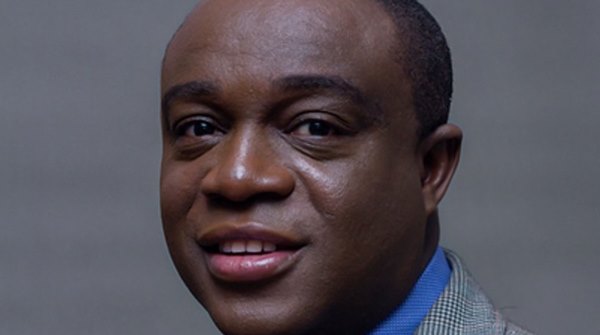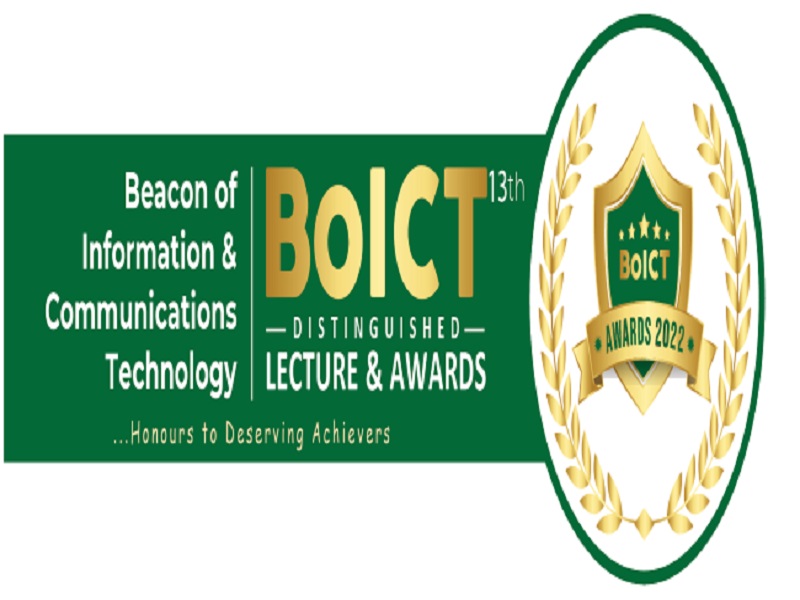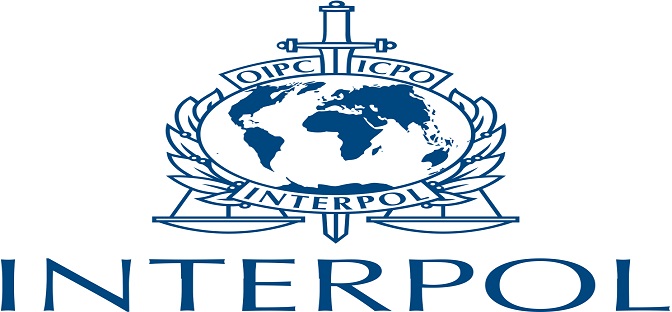News
COVID-19 Pause: Need for National Reflection and Self Reliance

By Akinyele Okeremi
The COVID-19 pandemic brings to the fore a rare opportunity for African nations to reawaken and reconsider national strategies. However, if we needed an emergency, we have it. It hinges on our future.

It hinges on our children. It hinges on how we react to this timely reminder. Because it is difficult for anyone to have imagined that the world would get to a situation where local and international travels would be restricted while social and commercial activities are almost comatose.
The travel restrictions also have an adverse impact on the movement of goods and services. It is safe to state that global interdependence has never been challenged the way it is presently.
While the world will remain interdependent, it is necessary for countries, especially Africans, to consider their capabilities to respond to challenges to become more self-reliant than they currently are.
With all due respect to many brilliant Africans, who are trying to create value legitimately, many riches in Africa are created through corruption and rent seeking. The economic situation in economies that depend heavily on natural resources such as petroleum-like Nigeria are likely to suffer a balance of trade deficits and may become unable to meet their financial obligations except they consciously move into other areas that are capable of generating sustenance and possible foreign exchange. More importantly, the challenges of the balance of trade are national security concerns for African countries.
Most of the critical activities that determine security and actual sovereignty are not in the control of nationals of African countries. It is funny. Why is it that all the time African countries must go begging? Why is Africa always at the receiving end? Has anything ever happened in the world and Africa has offered help instead of begging for help? It tells you we are not thinking right and this is the same thing that has happened and not just in government but also in our private businesses.
Turn our youthful population into gold
African countries need to develop their abilities to create real value for themselves rather than expect wealth to come merely because we are endowed with natural resources (which we invite foreigners to exploit on our behalf).
Africa must gravitate towards productive and knowledge-based economies. Data shows that Africa is blessed with a young and well-educated population. This makes it possible for them to contribute to the economy beyond mere primary products. With proper national strategies and value systems, the teeming African youth can create solutions to the challenges that daily face them.
This is extremely dangerous as this makes many African countries to become mere glorified colonies that cannot make sound decisions in their own interests and may never stand by such decisions if they are ever taken because of pressure from the countries that control their critical assets and resources.
What this translates into is that we dare not disagree seriously with those countries; otherwise our security will be in jeopardy. The security of African nations must be in the hands of Africans in substantive terms and not mere lip service.
Provide internally created solutions
Africa needs to rise to the challenge of becoming a continent to reckon with for providing solutions to challenges of the world. With no fear of equivocation, many Africans all over the world are working hard and have achieved great successes in their respective careers but the challenge is why does it appear that Africans do well in the diaspora? But do not do well on African soil?
My stab at this is that the institutions in the African continent need to be developed and strengthened to ensure that we can produce guaranteed relevant leaders. Africa needs to take another look at its compensation mechanism.
There is an obvious need to ensure that the right processes and results are appropriately rewarded while unacceptable conducts are punished accordingly. As the balance of trade challenges stare brazenly at us, there is a need to encourage policies to conserve our financial resources.
We need to ensure that we consume what we produce and to produce what we consume. This will require hard work and heavy lifting on the part of the leadership at all levels of African society. We need to take another look at our food security – I do not know how much of our food is in our control as Africans and I am concerned about this.
Wean ourselves off foreign solutions
A cursory look at our financial and the banking systems in Nigeria reveals that more than 90% of applications run by Nigerian banks come from foreign countries, mostly from India. The implication is that the Nigerian financial system could be switched off remotely with an attendant consequence of social unrest and possible removal of structures and even governments.
While this may seem far-fetched, it is my honest opinion that the risk and possibilities are very present and discerning leadership need to take a closer look at the possibilities in doing their risk assessments and response preparation.
If Africa is to make the right progress in the right direction, we need to build our own society, create solutions to solve our own problems without the need for wholesale copy and paste. We will refer to the beautiful and nice works that are in existence in other countries, but we will only adopt them and own them wholly in Africa.
In conclusion, I posit that the challenges with our current level of development create a major opportunity for us to produce our own solutions to those challenges with minimal help from other countries. This will give us the opportunity to move towards development and simultaneously creating wealth for ourselves as a people.
Recently, I listened to an interview by a Ghanaian woman who said, “I do not blame you [Europeans] – you did and are doing [all this] for your survival; we [Africans] can’t blame you for that. The fact is, we [Africans] didn’t do enough for our own survival and we are still not doing enough for our survival – that is not your problem.”
The context is that Africans, nay Nigerians, are not doing enough for our survival as a nation and as a people. COVID-19 has just exacerbated the situation we have put ourselves and the ramifications will come home to roost now unless we reflect and put in place many structures that will make us self-reliant soon.
Dr Okeremi is the MD/CEO of Precise Financial Systems headquartered in Lagos, Nigeria.
News
ABoICT Lecture 2026 to Focus on Impact of AI, IoT on Business Operational Efficiency

Board and management of Communication Week Media Limited, publishers of Nigeria CommunicationsWeek, at the weekend announced that this year’s Africa’s Beacon of ICT Merit and Leadership lecture will focus on Impact of AI and IoT on business operational efficiency.

Africa’s Beacon of ICT Merit and Leadership lecture, widely regarded as the most prestigious annual event available in the ICT industry in Nigeria is in its 17th year.
The lecture holds on May 30, 2026 at Oriental Hotel Lekki, Lagos, according Ken Nwogbo, editor-in-chief of
Nigeria CommunicationsWeek the organizers of the event.
He said that this year’s event “is digital transformation edition” to recognise and celebrate organizations and individuals in the ICT industry that have impacted in digital transformation of the economy.
“Most of these organizations and individuals have consistently being voted by our readers as leaders in their areas of operations and we have decided to reward them in this special edition, tag: ‘Digital Transformation Edition 2026’ he said,”.
He added that, Digital transformation, driven by AI and IoT, will fundamentally boosts business operational efficiency by automating complex tasks, enabling real-time data analysis, and reducing costs.
“IoT technology optimizes resources, predict maintenance needs, and enhance decision- making, allowing companies to streamline workflows and improve productivity across sectors like manufacturing and logistics.
“It is an emerging technology that has impacted lifestyles and has changed the way we think and act, and the way we interact with each other.
It has also changed the way we work as it enables very large-scale monitoring, control, and automation, and has impacted the digital transformation of organizations in different industries”, he said.
According to him, “the transformative power of Artificial Intelligence exists as a bringing force in organizational communication. AI tools perform repetitive jobs, deliver simultaneous translations, and register team communication patterns, which lead to better understanding of group interactions. AI chatbots help manage customer support inquiries thus enabling staff members to dedicate their efforts toward complex work activities”.
The Africa’s Beacon of ICT Merit and Leadership Distinguished (ABoICT Lecture 2026) is designed to explore efforts to put Nigeria on the global Information and Communications Technologies map.
The lecture series however is reserved for distinguished achievers in the ICT sector.
Past lecturers included Dr. Ernest Ndukwe, then executive vice chairman, Nigeria Communications Commission (NCC); Uche Orji, managing director/chief executive officer, Nigeria Sovereign Investment Authority (NSIA); Biodu Omoniyi, Managing Director/CEO, VDT Communications; Ayotunde Coker, former Managing Director, Rack Centre Limited; Prof. Adewale Obadare, chief visionary officer, Digital Encode; Dr. Oluseyi Akindeinde, founder,
Hyperspace & NeuraL AI and John Obaro, CEO and founder of Systemspecs; Prof. Isa Pantanmi, former minister of Communications and Digital Economy; among others.
News
AI-Driven Memory Chip Fuels Global Phone Price Surge

Global technology markets are entering a new phase of strain as surging memory chip prices intensify the ongoing semiconductor shortage. For Nigeria, the ripple effects could translate into a 15 – 20 per cent increase in phone price levels if supply pressures persist into the next quarter.

While attention has largely focused on advanced AI processors, the sharpest escalation is occurring in memory chips, specifically DRAM (Dynamic Random Access Memory) and NAND (Flash Memory), which are essential to smartphones, PCs, and vehicles.
According to Bloomberg data, spot prices for DRAM have surged more than 600 percent in recent months. NAND prices have also climbed as artificial intelligence infrastructure expands global storage demand.
This shift reflects a structural realignment rather than a short-term disruption.
Massive AI infrastructure investments led by hyperscalers such as Amazon have redirected fabrication capacity toward high-bandwidth memory (HBM), a critical component for AI accelerators. This shift has tightened supply for conventional memory used in consumer devices.
Market analysts now describe the situation as a memory “supercycle,” breaking the industry’s traditional boom-and-bust pattern. Historically, memory cycles lasted three to four years. According to Jian Shi Cortesi of GAM Investment Management, the current cycle has already exceeded previous ones “both in length and magnitude,” with little evidence of demand momentum softening.
Financial markets reflect the divide. A Bloomberg gauge of global consumer electronics makers has fallen roughly 10 per cent since late September, while a basket of memory manufacturers has surged about 160 per cent over the same period. Shares of SK Hynix, a key high-bandwidth memory supplier to Nvidia, have climbed more than 150 per cent.
By contrast, downstream manufacturers reliant on affordable memory supplies are under pressure. Nintendo has warned of margin compression linked to shortages. Qualcomm shares declined after signaling memory constraints that could limit phone production. PC makers such as Lenovo and Dell have also retreated from recent peaks amid concerns that rising chip costs could dampen demand.
The divergence underscores a widening gap between component producers and device assemblers.
Memory is central to modern smartphone performance. Higher DRAM and NAND capacities power AI-enabled features, high-resolution imaging, and multitasking capabilities. Rising memory costs, therefore, feed directly into the bill of materials.
Even in a moderate demand environment, a constrained memory supply can limit production volumes. Qualcomm’s recent indication that memory shortages may restrict handset output highlights the risk of scarcity extending beyond price increases into availability challenges.
Compounding the issue, a foundry such as TSMC is prioritising higher-margin AI-related contracts at advanced nodes. Combined with the reallocation of capacity toward high-bandwidth memory, this limits flexibility in supplying traditional mobile processors and storage components.
For Nigeria, the likely outcome is not immediate widespread stockouts, but gradual upward revisions in retail pricing.
Nigeria’s electronics market remains heavily import-dependent, with minimal semiconductor manufacturing capacity. Retailers are therefore exposed to global cost shifts and supply volatility.
Distributors in major commercial hubs such as Lagos’ Computer Village are closely monitoring global trends. Some are securing inventory ahead of anticipated adjustments, while others are maintaining leaner procurement cycles to manage uncertainty.
Duration risk remains a key concern. Fidelity International’s Vivian Pai recently observed that while markets may be pricing in normalization within one to two quarters, industry tightness could persist through the rest of the year. If that proves accurate, manufacturers will have limited room to absorb higher component costs without passing them through to consumers.
Mid-tier smartphones, especially those balancing affordability with competitive performance, are likely to face the greatest pressure. Manufacturers may respond by offering lower base storage variants, delaying feature upgrades, or raising prices incrementally across product lines.
Parallel imports could increase if global scarcity intensifies, potentially raising concerns about warranty coverage and after-sales support.
Globally, firms are attempting to mitigate exposure by locking in long-term supply contracts, raising product prices, or redesigning devices to use less memory. However, semiconductor fabrication is capital-intensive and slow to scale. New fabrication plants require years to build, and expanding high-bandwidth memory output involves complex processes that cannot be rapidly accelerated.
For Nigeria, the episode underscores the importance of strengthening digital resilience. While domestic chip fabrication remains unlikely in the near term, expanding local device assembly, promoting repair ecosystems, and supporting component recycling could help cushion future supply shocks.
If projections hold, Nigerian buyers may begin seeing incremental price adjustments within weeks. Mid-range Android devices are likely to record the most noticeable changes, while premium models, already positioned at higher price points, may see more measured increases.
As it stands, AI’s explosive growth is reshaping semiconductor allocation patterns, and memory, once viewed as a product with prices that rise and fall in cycles, is behaving like a sustained constraint.
The widening gap between stock market winners and losers reflects the magnitude of this transition. As AI infrastructure spending accelerates globally, consumer electronics markets, including Nigeria’s, must adjust to a new cost environment.
Whether the squeeze proves temporary or evolves into a prolonged recalibration will depend on how quickly semiconductor capacity expands. For now, the trajectory suggests continued upward pressure on global electronics pricing, and Nigeria’s phone price expectations may have to adjust accordingly.
News
INTERPOL Arrests 651, Recovers $4.3m from Cybercrime in Nigeria, Others

African law enforcement agencies arrested 651 suspects and recovered over $4.3 million in a joint operation targeting investment fraud, mobile money scams, and fake loan applications.

As INTERPOL revealed on Wednesday, Operation Red Card 2.0 identified 1,247 victims between December 8 and January 30 while targeting cybercrime operations linked to over $45 million in financial losses.
Authorities across 16 countries also seized 2,341 devices and took down 1,442 malicious websites, domains, and servers during this joint action coordinated by the African Joint Operation against Cybercrime (AFJOC).
In Nigeria, police officers dismantled an investment fraud ring that was recruiting young people to run phishing, identity theft, and fake investment schemes, taking down over 1,000 fraudulent social media accounts in the process.
They also arrested six members of a Nigerian cybercrime gang that used stolen employee credentials to breach a major telecom provider.
Kenyan investigators also apprehended 27 suspects while investigating fraud networks that used social media and messaging platforms to lure victims into fake investment schemes.
In Côte d’Ivoire, 58 suspects were arrested as part of a crackdown on predatory mobile loan apps that targeted victims with hidden fees and abusive debt-collection practices.
“These organized cybercriminal syndicates inflict devastating financial and psychological harm on individuals, businesses and entire communities with their false promises,” said Neal Jetton, the head of INTERPOL’s Cybercrime Directorate.
“Operation Red Card highlights the importance of collaboration when combatting transnational cybercrime. I encourage all victims of cybercrime to reach out to law enforcement for help.”
One year ago, African law enforcement arrested another 306 suspects in the first stage of this INTERPOL-led operation targeting cross-border cybercriminal networks.
This is the latest INTERPOL operation targeting African cybercrime, with thousands of arrests and multiple multimillion-dollar operations disrupted or dismantled in recent years, following Operation Serengeti and Operation Africa Cyber Surge.

 Telecom3 days ago
Telecom3 days agoGroup Condemns Gabon’s Social Media Shutdown Amid Protests

 Telecom3 days ago
Telecom3 days agoIXPN Positions as the Regional Internet Exchange Hub for West Africa

 General News3 days ago
General News3 days agoHow JustMarkets Is Empowering African Traders with Global Market Access

 E-Business3 days ago
E-Business3 days agoMutual Benefits Assurance Settles ₦5.9bn Claims in January 2026

 Telecom3 days ago
Telecom3 days agoMenxtt NG Emerges as Nigeria’s Virtual IT Hub for Premium Devices, Solutions

 Broadcasting3 days ago
Broadcasting3 days agoPheelz Shares His Journey on Glo-Sponsored African Voices

 E-Business3 days ago
E-Business3 days agoNITDA DG Reaffirms FG Commitment to Responsible and Inclusive AI

 News3 days ago
News3 days agoAI-Driven Memory Chip Fuels Global Phone Price Surge


























